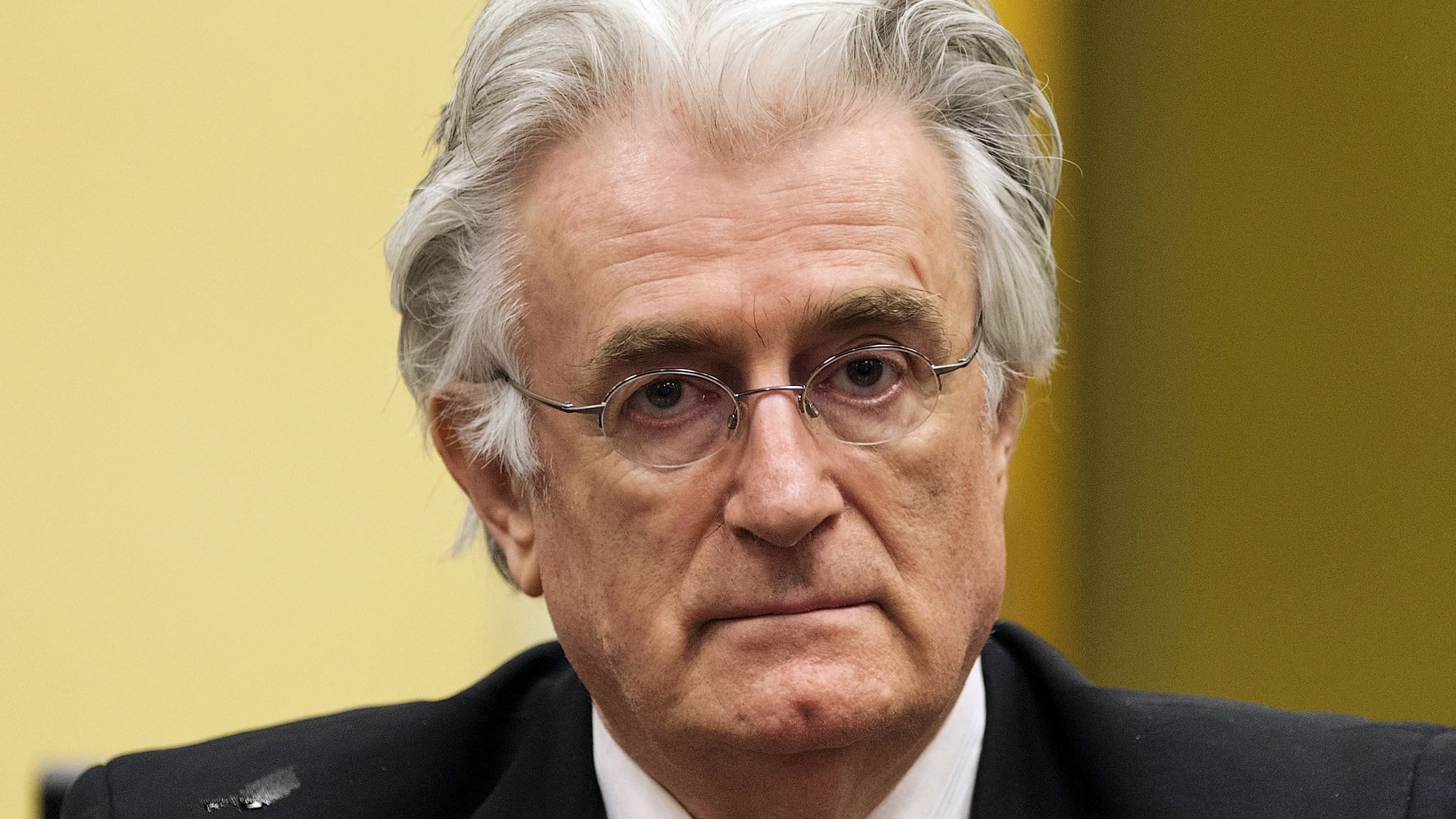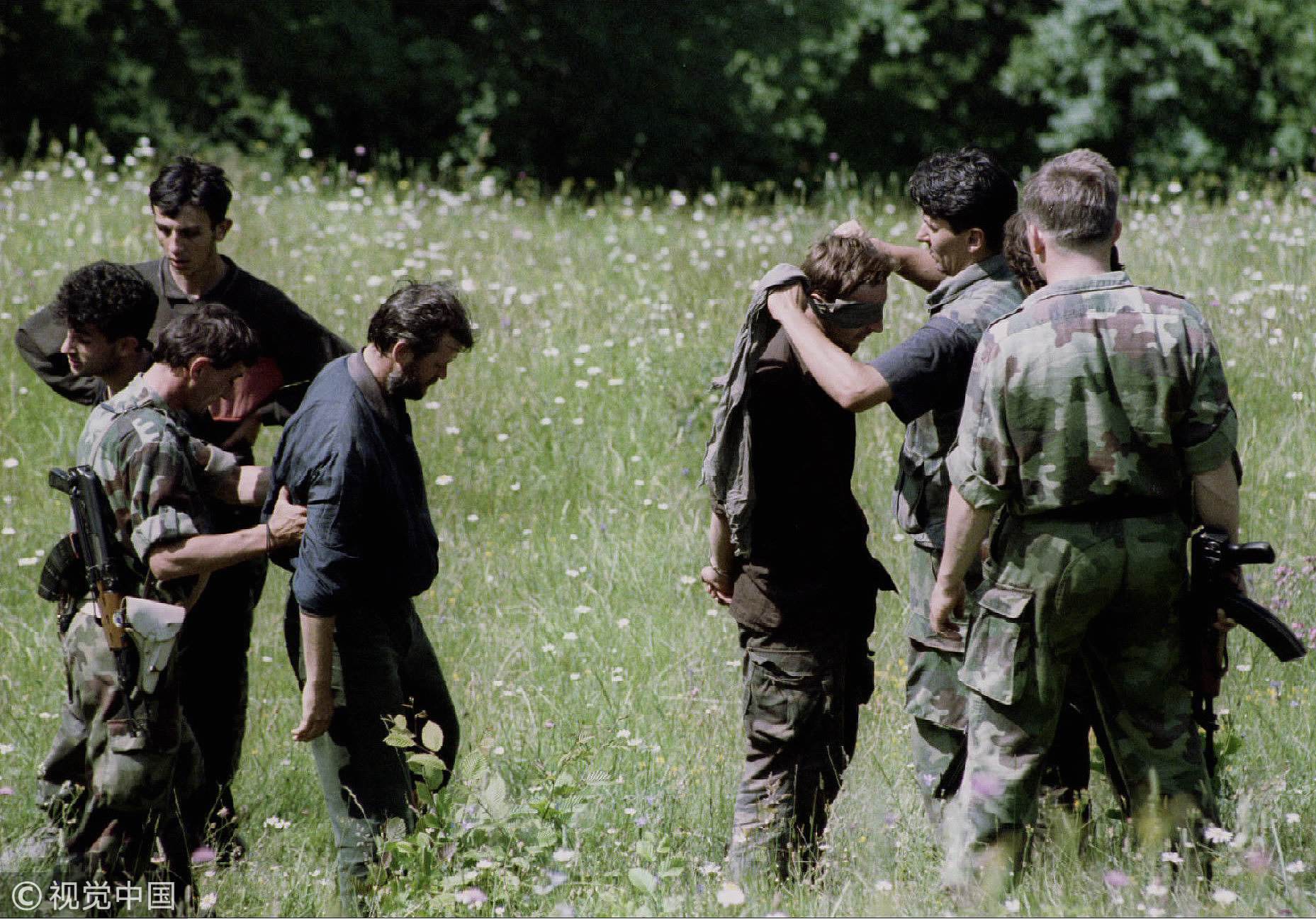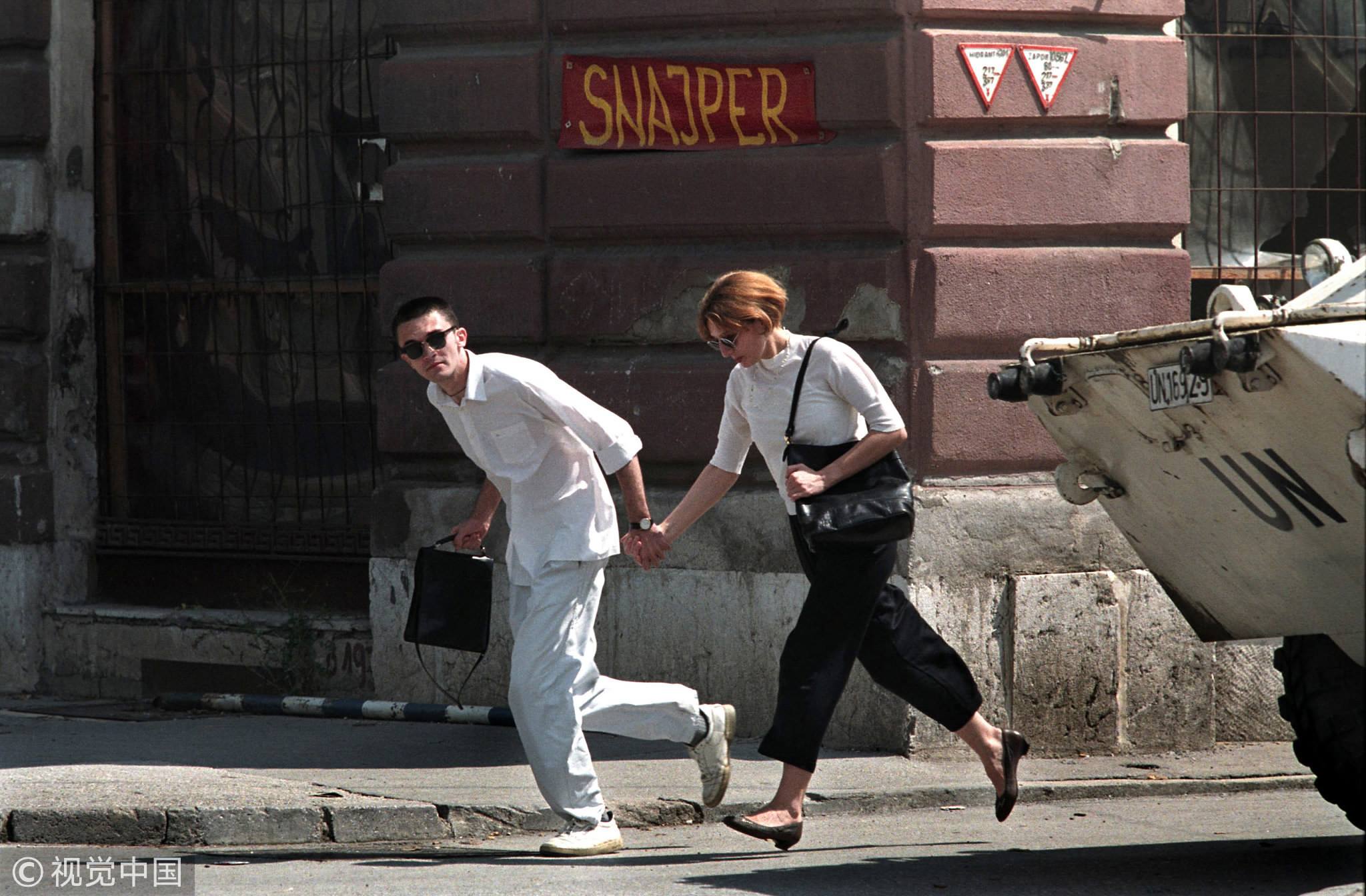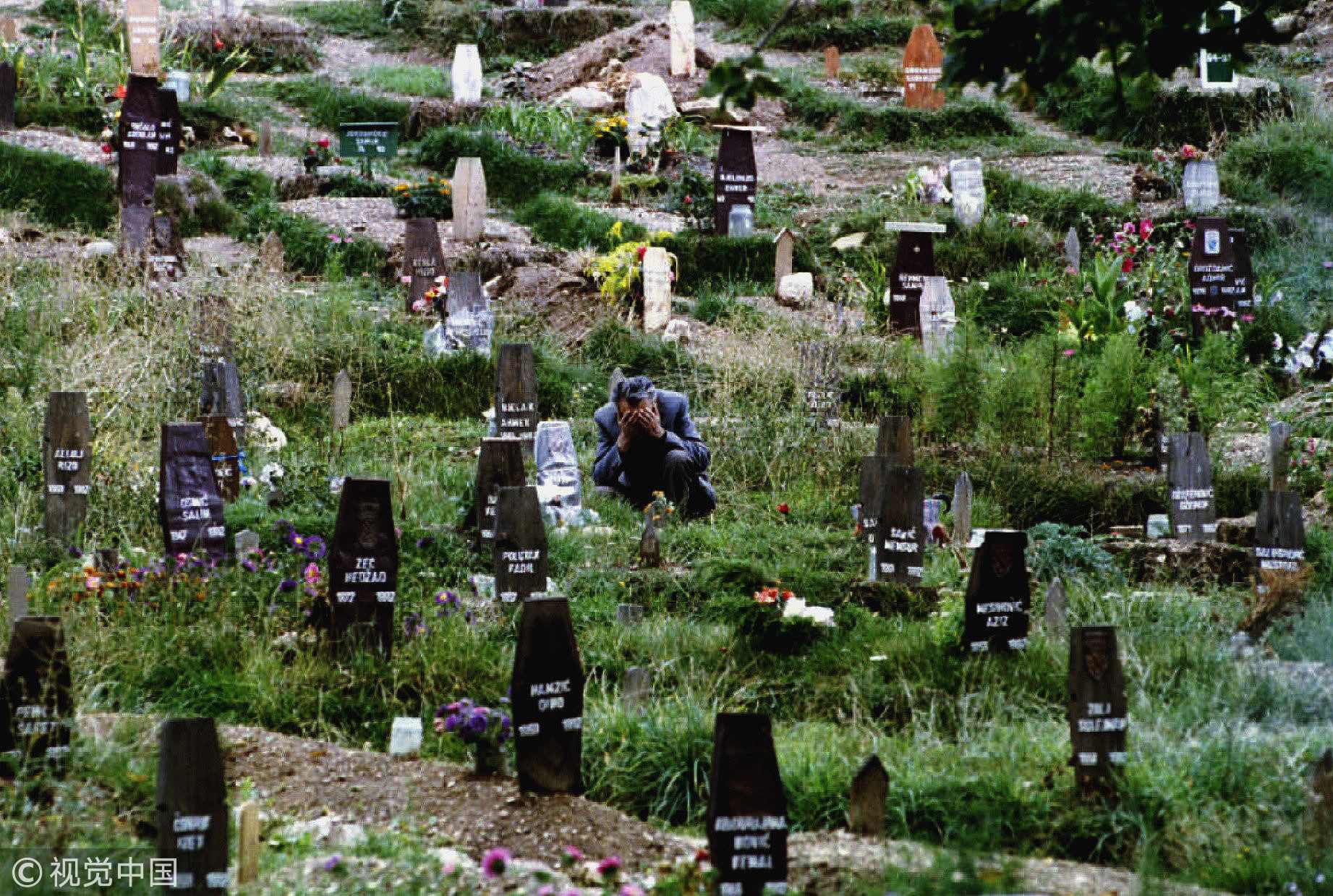
World
12:50, 23-Apr-2018
Karadzic to appeal Bosnia war crimes, genocide conviction
CGTN

Former Bosnian Serb leader Radovan Karadzic will appear in a UN court on Monday to appeal his conviction for genocide and war crimes committed during the bloody 1990s Bosnian conflict, in which over 100,000 people were killed.
One of the most notorious suspects to be tried for war crimes in the former Yugoslavia, Karadzic, now 72, was convicted in 2016 for his role in the Srebrenica massacre and the siege of Sarajevo and sentenced to 40 years in prison.
UN judges at the International Criminal Tribunal for the former Yugoslavia (ICTY), who handed down the conviction, said he was "at the apex of power" of the Bosnian Serb military and political hierarchy when atrocities were committed by his troops.

A Bosnian Croat soldier blindfolds Muslim prisoners before turning them over to Bosnian Serb forces for interrogation in Konjic, Bosnia, in this June 14, 1993 file photo. /VCG Photo
A Bosnian Croat soldier blindfolds Muslim prisoners before turning them over to Bosnian Serb forces for interrogation in Konjic, Bosnia, in this June 14, 1993 file photo. /VCG Photo
In all, Karadzic was found guilty on 10 counts of genocide, war crimes and crimes against humanity for the brutal campaign of ethnic cleansing in Bosnia he oversaw as the president of the breakaway Bosnian Serb Republic.
Accusing judges of conducting a "political trial," he has now filed 50 grounds of appeal, asking for the entire judgment to be reversed and for a "new and fair trial" to be ordered.
Srebrenica and Sarajevo
In their March 2016 verdict, judges found Karadzic guilty of genocide for masterminding the 1995 Srebrenica massacre, deemed the worst bloodshed on European soil since World War II.

A young couple runs across the infamous Sniper Alley in Sarajevo, Bosnia, in this January 1, 1995 file photo. /VCG Photo
A young couple runs across the infamous Sniper Alley in Sarajevo, Bosnia, in this January 1, 1995 file photo. /VCG Photo
Almost 8,000 Muslim men and boys were slaughtered and their bodies dumped in mass graves after Bosnian Serb soldiers overran a protected "safe area" guarded by lightly-armed Dutch UN peacekeepers.
The judges also said the 44-month siege of Sarajevo – in which 10,000 civilians died in a relentless campaign of sniping and shelling – could not have happened without Karadzic, and that he committed crimes against humanity in an attempt to purge Muslims and Croats from parts of Bosnia.
Bosnian Serb and Serb leaders developed an "organized and systematic pattern of crimes committed against Bosnian Muslims and Bosnian Croats," the judges ruled, which included deportations, attacks on non-Serb populations, detentions and rapes.

A Bosnian man in a cemetery cries over the grave of his wife in Sarajevo, Bosnia, in this September 8, 1993 file photo. /VCG Photo
A Bosnian man in a cemetery cries over the grave of his wife in Sarajevo, Bosnia, in this September 8, 1993 file photo. /VCG Photo
The aim was "to spread terror among the civilian population," the judges said.
Karadzic was the highest ranked person to be convicted and sentenced at the ICTY after former Serbian President Slobodan Milosevic died while on trial.
Two days of hearings
The appeal hearing at the Mechanism for International Criminal Tribunals (MICT), which took over from the ICTY after the latter closed for good last year, will last two days.
Karadzic is acting as his own lawyer, with help of legal counsel.
Aside from his appeals, the prosecutors also have appeals of their own: they are seeking a life sentence on a second count of genocide in seven Bosnian towns and villages during the 1990s war, for which Karadzic was acquitted.
A verdict is expected by the end of the year.
(Top picture: Radovan Karadzic appears in court at the International Criminal Tribunal for Former Yugoslavia (ICTY) in The Hague, Netherlands, in this July 11, 2013 file photo. /VCG Photo)
Source(s): AFP
,Reuters

SITEMAP
Copyright © 2018 CGTN. Beijing ICP prepared NO.16065310-3
Copyright © 2018 CGTN. Beijing ICP prepared NO.16065310-3